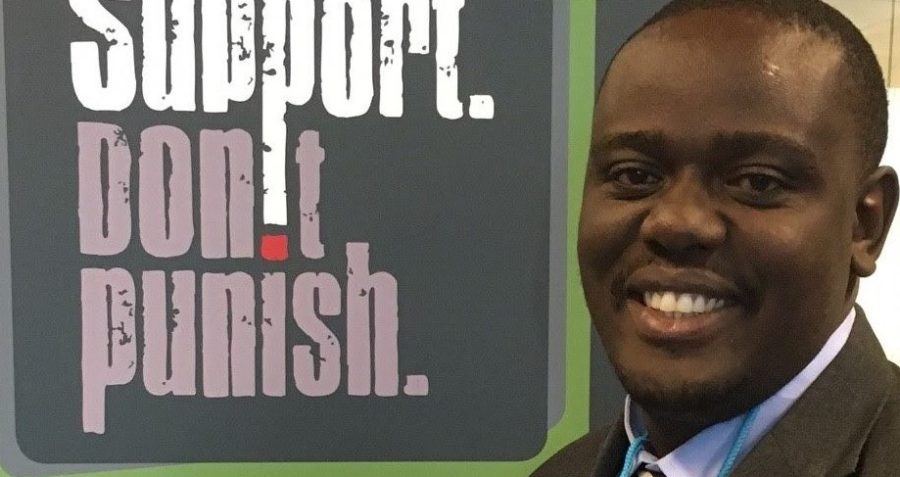The road to change: reforming drug policies and shifting attitudes in Zimbabwe
 © ZCLDN
© ZCLDN
Despite no official data on people who use drugs in Zimbabwe, evidence suggests the population is significant and particularly vulnerable to HIV. Yet harm reduction services do not currently exist.
The Zimbabwe Civil Liberties and Drug Network (ZCLDN) is helping to change this. It has become a driving force in shifting attitudes and reforming drug policies, and the country may now be on the verge of real change.
Wilson Box, executive director of ZCLDN, says: “We have got to point where many people, including legislators, see the sense of our message – that drug use is a public health issue, not a criminal one.”
Creating change
Central to drug policy reform in Zimbabwe is the adoption of a drugs master plan, a national framework that stipulates which bodies should be responsible for dealing with illicit drug use in order to address both drug supply and reduce demand. The aim of the master plan is to provide a multipronged approach by involving numerous government ministries, so that issues of treatment and rehabilitation are addressed alongside security and law.
“A drugs master plan takes a holistic approach,” explains Wilson. “Its focus is inter-ministerial – involving, not just security, prison and law enforcement but health, education and social welfare, for instance – and it should also include civil society.”
Zimbabwe began developing a drugs master plan in 1999 then the process stalled. In 2016, ZCLDN began working with international organisations, including the Open Society Foundation and the International Drug Policy Consortium with its flagship, Support. Don’t Punish Campaign to reignite the process. In 2018 the Partnership to Inspire, Transform and Connect the HIV response (PITCH) started supporting ZCLDN and advocacy accelerated.
“For the past two years we have sensitised a lot of stakeholders on the need to ensure the rights of people who use drugs are respected, that they have access to health services, and for the need for a drugs master plan,” says Wilson. “We are now close to that plan being finalised and its structure adopted.”
Creating allies
The list of groups ZCLDN has reached in the past two years is long and includes members of parliament, police narcotics squads, prison officers, journalists, healthcare workers and civil society organisations. As part of this work, ZCLDN has cultivated 10 MPs to act as champions who have committed to progressing the rights of people who use drugs within parliament.
“We’ve held trainings, meetings and workshops; designed flyers, held musical concerts – all to encourage people to support people who use drugs. Through these activities our voice has gone places,” says Wilson.
“More than half of the journalists writing in Zimbabwe on this issue now realise people who use drugs have rights. There has been a shift in language.
“Attitudes in the general public are also changing. We are seeing more concerned family members get in touch with us to ask how they can support their partner or child. We hold support groups in Harare every Friday, and family members are reminding people to go, understanding that it’s important.
“The issues of stigma and discrimination are dying down and we are so proud of that.”
Significant steps
In July last year, ministers in charge of health, population and drug control from African Union member states met in Cairo to agree a plan of action towards adopting more integrated and balanced strategies towards drug use. As part of this, the AU’s Department for Social Affairs recommended that member states adopt drug master plans by 2023.
ZCLDN was one of around 30 civil society organisations that attended the meeting and presented a paper on civil society’s position on the issue. Wilson describes this moment as key.
“It was so important,” he says. “The meeting supported what we have been clamouring for, for so long. It brought Ministries of Health to the table. When we came back, a representative from the Ministry of Health and Child Care came to us to talk about bringing the drugs master plan forward.”
In July this year, supported by regional PITCH partner the AIDS & Rights Alliance for Southern Africa, ZCLDN assisted the Ministry of Health and Child Care to create national treatment and rehabilitation guidelines for drug and alcohol use that include harm reduction. Not only is this a major step forward in its own right, these guidelines will form a key part of the drug master plan.
Making the plan a reality
In September, ZCLDN will host workshops between civil society and the inter-ministerial committee responsible for the plan in order to finalise it. After this, the plan will move through Zimbabwe’s cabinet of ministers and the Attorney General’s office before going to parliament. The aim is for the plan to be adopted early next year.
After this ZCLDN will turn its attention to ensuing harm reduction services, including opioid substitution therapy, are piloted.
“ZCLDN is a small organisation, although our reach is national, but what we have done to date we have done to the best of our abilities, and we have shown that it works,” says Wilson.
“The international community has really supported organisations like ours and we need this support to continue.
“I’m hopeful that in a few year’s time people who use drugs will not be stigmatised and discriminated against, and that harm reduction programmes will be everywhere in Zimbabwe. We are also looking forward to seeing a downward curve in HIV, TB and Hepatitis C transmission. To see all this – that would finally be mission accomplished.”
The Partnership to Inspire, Transform and Connect the HIV response (PITCH) is a joint partnership between Aidsfonds, Frontline AIDS and the Netherlands Ministry of Foreign Affairs.
Tags
Harm reductionPeople who use drugsPITCHZimbabwe


